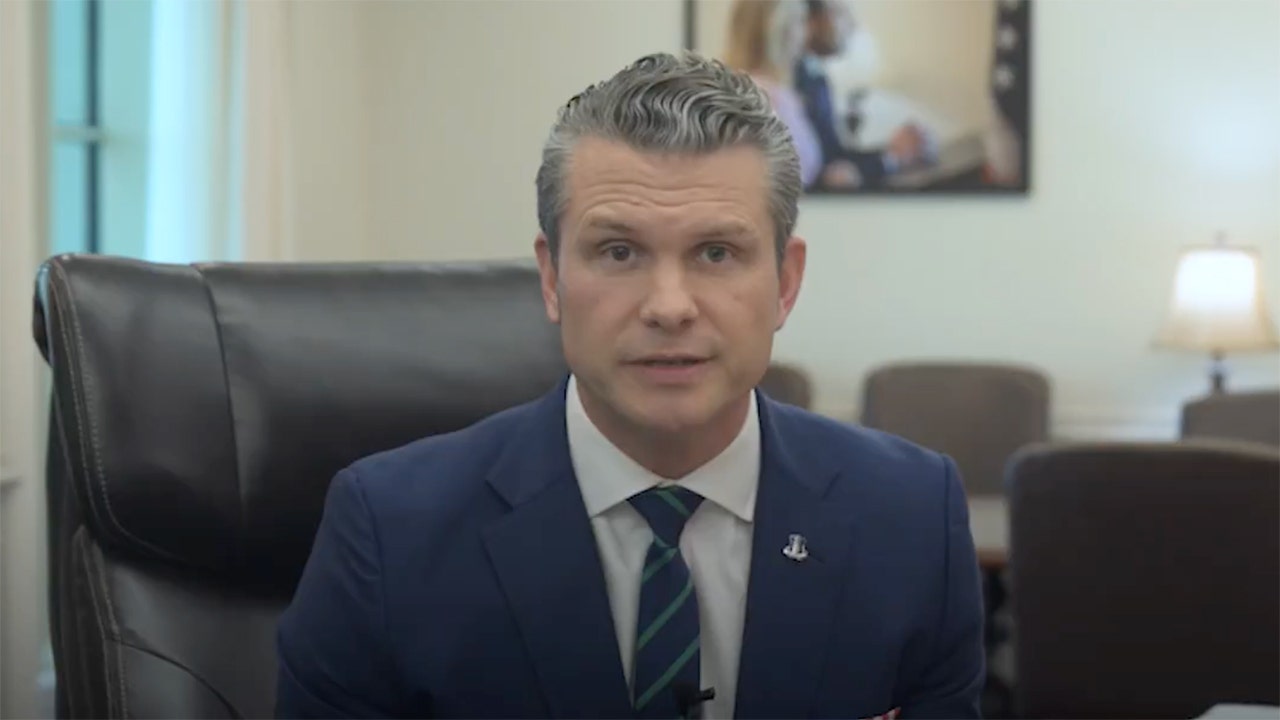Politics
Defense Secretary Hegseth working with DOGE to cut the ‘BS’

Understanding the Department of Government Efficiency (DOGE) and Pentagon Restructuring
In a recent video address, Secretary of Defense Pete Hegseth outlined the upcoming changes at the Pentagon as part of a broader effort to streamline government operations. The Department of Government Efficiency (DOGE) has been tasked with identifying redundancies and inefficiencies across various federal agencies, and the Department of Defense (DoD) is now under scrutiny. Hegseth emphasized that DOGE officials, many of whom are veterans, are being granted broad access to Pentagon operations, with appropriate safeguards in place to protect classified information. This initiative aims to refocus the DoD’s budget on mission-critical priorities while eliminating what Hegseth referred to as non-essential initiatives, such as diversity, equity, and inclusion (DEI) programs, climate change-related expenditures, and other "woke" policies. The secretary framed this effort as a necessary step to ensure the military remains focused on its core mission: protecting the American people.
The Budget Refocus: Prioritizing National Security Over Non-Essential Spending
At the heart of the DOGE’s review is a significant budget realignment. Hegseth clarified that the $50 billion reduction from former President Joe Biden’s defense budget is not a cut but rather a "refocusing and reinvesting" of funds. This shift is designed to prioritize President Donald Trump’s defense priorities, which include building a more formidable military force. Hegseth stressed that key programs will not be eliminated but rather adjusted to align with the administration’s goals. The secretary also highlighted that the Pentagon has already achieved an 8% reduction in its budget, demonstrating its commitment to fiscal responsibility while maintaining military readiness.
The Role of DOGE in Government-Wide Restructuring
DOGE’s arrival at the Pentagon follows similar reviews at other federal agencies, including the Treasury, Labor, Education, and Health departments, as well as the Consumer Financial Protection Bureau, Office of Personnel Management, and Internal Revenue Service (IRS). The temporary organization, led by Elon Musk, has been tasked with identifying inefficiencies and eliminating wasteful spending across the government. However, DOGE’s activities have sparked controversy, with critics accusing the Trump administration of granting Musk excessive power. Several lawsuits have been filed to block DOGE’s access to sensitive information, further complicating the organization’s efforts.
Addressing Workforce Efficiency: A Government-Wide Initiative
In addition to budgetary adjustments, the Pentagon is also reevaluating its workforce as part of a government-wide initiative ordered by President Trump. Hegseth explained that the focus is on retaining only mission-critical employees, particularly among probationary workers. "It is simply not in the public interest to retain individuals whose contributions are not mission-critical," he stated. This approach has already led to significant personnel reductions in other agencies, such as the termination of 3,600 probationary employees at the Department of Health and Human Services and an expected 7,000 cuts at the IRS during tax season. While the exact number of defense employees affected remains unclear, the department has implemented a hiring freeze as it reassesses its workforce needs.
Challenges and Controversies Surrounding DOGE’s Mission
Despite the stated goals of cost-cutting and efficiency, DOGE’s efforts have faced intense scrutiny. Critics argue that the organization’s broad mandate and the involvement of Elon Musk raise concerns about accountability and overreach. The temporary nature of DOGE has also led to questions about the long-term impact of its recommendations. Additionally, the focus on eliminating certain programs, such as DEI initiatives and climate change-related expenditures, has been criticized as politically motivated. Hegseth, however, has defended these measures, asserting that they are necessary to strip away distractions and focus solely on the military’s core objectives.
Conclusion: Building a Leaner, More Focused Military
In summarizing the changes underway at the Pentagon, Hegseth emphasized the administration’s commitment to building "the biggest, most bad-a– military on the planet." This vision, he explained, is rooted in a desire to ensure the military is equipped to protect American interests while avoiding the pitfalls of wasteful spending and bureaucratic inefficiency. The partnership with DOGE, despite its controversies, is seen as a key step in achieving this goal. As the Pentagon navigates this period of restructuring, Hegseth reiterated that the focus remains on "doing right by the warfighters, by the troops," ensuring that every dollar and every effort is directed toward enhancing national security and military readiness.